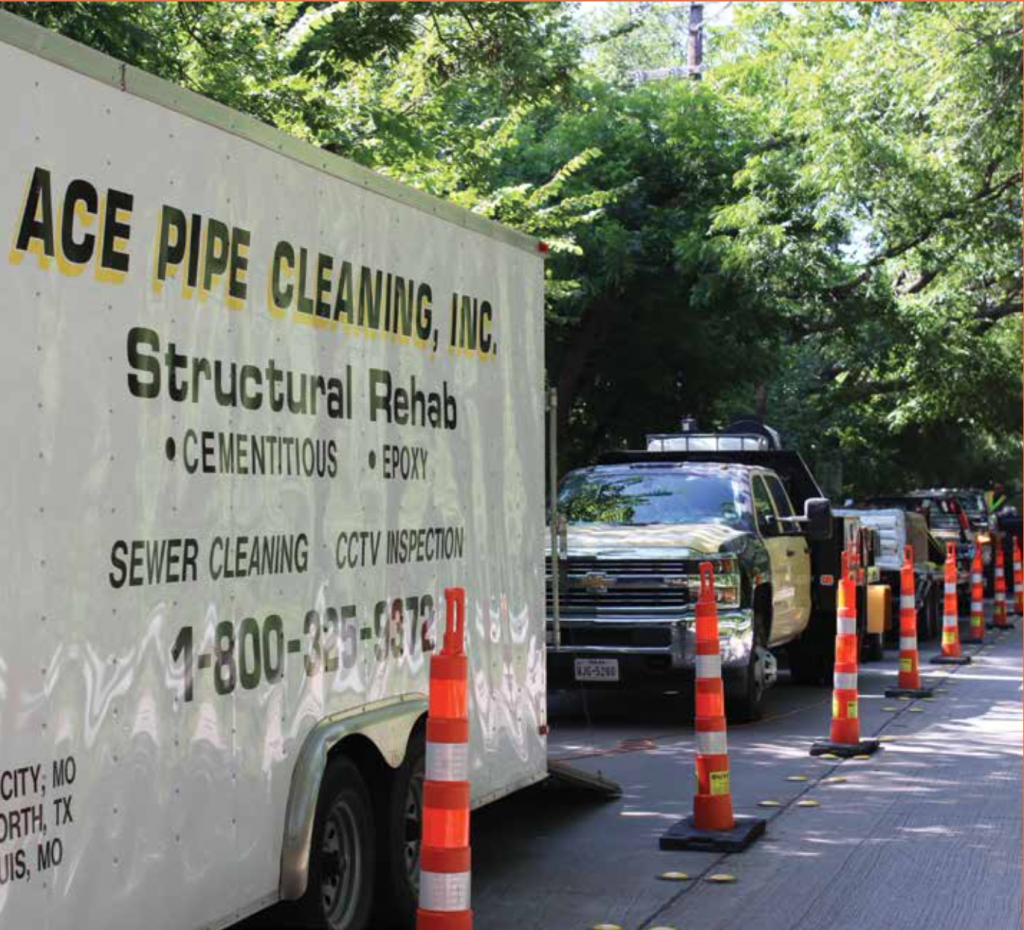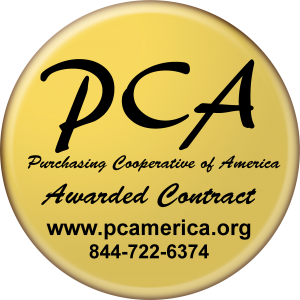By Theresa Calvert
Manholes that have fallen into disrepair are beyond a minor inconvenience. Left unchecked, failing manholes can collapse, potentially causing street cave-ins and sewer line blockages. Worse, these deteriorating manholes place an unnecessary burden on the community’s sewer and water systems, leading to high replacement costs and serious water pollution control problems. Collapsed man-holes, blockages and cave-ins can also lead to serious safety problems and possible costly litigation.
Think of it this way: Manholes are basically under attack from the forces of Mother Nature every day. Invasive roots, erosion, settling, extreme weather from freezes to record rainfalls, and even earthquakes take their toll, 24 hours a day, seven days a week. Many of the country’s manholes are 25, 50 and even 100 years old and are made of brick, concrete and other masonry materials prone to microbial-induced corrosion over time. Is it any surprise they need attention?
Rehabilitation and the Bottom Line
Communities have two options for addressing the never-ending issue of deteriorating manholes: replacement or rehabilitation. Replacing manholes can be effective, but it is also expensive and often very disruptive to the community, involving intensive traffic control, noise, excavation holes, landscape disruption and environmental damage, to name a few. And if the excavation involves a paved surface, many resources are required in terms of labor and equipment. Conversely, rehabilitation is minimally invasive, less disruptive and more cost-effective. With most budgets reeling from the effects the pandemic has wrought on city coffers, rehabilitation can be an excellent trenchless option.
According to Bryan Dobson, operations manager with Ace Pipe Cleaning, experienced manhole rehabilitation specialists can restore manholes and other structures to better-than-new condition in less time than it would take to replace them. And the work can be completed at a fraction of the cost of replacement — often without any excavation.
“The cost to rehabilitate a manhole located in a city street is about 15 percent of the cost to replace it,” says Dobson. “Also, the impact on traffic and public safety is much less when rehabilitating versus replacing. A typical 10-ft-deep manhole can be fully rehabilitated in just a few hours, while a dig-and-replace can take days to complete.” When a municipality is faced with addressing its aging and deteriorating manholes, rehabilitation can:
- Provide a safer and faster solution than replacement
- Eliminate infiltration/exfiltration problems
- Reduce deterioration rate, extending manhole life
- Save cost of conventional replacement
- Eliminate costly excavation and backfilling
- Eliminate disruption of sewer services
- Eliminate damage to property and community impact, such as driveway access
The Case for Coatings
Manhole rehabilitation focuses on structural rehabilitation and protective coatings, which in turn provide a permanent seal against corrosion, infiltration and exfiltration… and in less time than it takes to replace a structure. So how do you start your project? After you have designated an area in need of repair, the manhole structures need a proper condition assessment by a NASSCO (National Association of Sewer Service Companies) certified MACP (Manhole Assessment and Certification Program) technician. The following are some of the rehabilitation options that can be specified and provided, depending on the specific needs of each manhole:
- Epoxy Solutions. Epoxy products can be sprayed on new manholes to achieve a protective coating. They can also be sprayed over cementitious products in existing manholes that have deteriorated walls. The teams at Ace Pipe Cleaning use a wide range of 100% solids, zero-VOC epoxies to meet each community’s exact requirements. These ultra-high- build products can be sprayed or troweled on to achieve up to 250-mil wet-film thickness on vertical or overhang surfaces without sagging. They can be modified to meet specific flexural modulus and strength requirements, cure fast even underwater, and provide the highest level of corrosion protection where high concentrations of hydrogen sulfide, sulfuric acid, sodium hydroxide, hydrocarbons and an array of other chemicals are present.
- Cementitious Solutions. Cementitious products are sprayed and hand-applied. These factory-blended products range from Portland Cement to Calcium Aluminate to Pure-Fused Calcium Aluminate Base and, along with the use of anti-microbial additives, can offer a wide range of protection against damaging pH and high levels of hydrogen sulfide. These unique, high-strength formulations should be blended specifically for the job at hand for maximum results. When blended and applied properly, cementitious products provide a monolithic 1/2-inch to 3-inch one-pass spray application that helps restore structural integrity to deteriorating manholes and provide a permanent seal against corrosion, infiltration and exfiltration.
- Manhole Chimney Sealing. A major source of infiltration/inflow in manholes is the connection between the frame and the chimney. Freeze/thaw cycles and heavy traffic constantly stress the connection, eventually creating an opening where surface water readily enters the manhole. Technicians use a spray-applied monolithic, fast-cure coating with elongations of 500% plus, delivering a coating that forms a tight 125-mil barrier that connects the frame to the rest of the manhole. The corrosion resistance of the coating is ideal for protecting open storm inlets from winter salts that quickly deteriorate an inlet’s concrete rings.
Choosing the Right Service Provider
Safety should be of utmost importance to the contractor chosen to do this type of work, says Dobson. “At Ace Pipe Cleaning, all skilled workers perform in accordance with applicable OSHA safety standards, following strict guidelines for confined-space entry in accordance with the U.S. Department of Health and Human Services/National Institute for Occupational Safety and Health,” says Dobson.
“All reputable products used in the rehabilitation process typically require a certified manufacturer-trained and licensed applicator,” Dobson explains. This is important because it lets the owner, engineer or municipality know that the installers are properly licensed and trained in the application of such products, whether they are cementitious, epoxy and/or chimney liner products. Dobson also suggests ensuring the work is warranted for at least one year.
How will you get the funding for manhole rehabilitation work? One option is to consider cooperative procurement (“piggyback”) contracts that have already gone through the bidding process in your region. Many city and county agencies are open to approving projects that are considering cooperative procurement when they were bid. According to Dobson, an experienced firm can assist you in finding the procurement plan that fits the needs of your community.
While there are occasions where replacing deteriorating manholes may make sense, rehabilitation is the solution of choice for communities that want to address their aging infrastructure and stretch dollars at the same time. In the hands of skilled rehabilitation specialists, manholes and other structures can be restored to “better than new” condition in less time than it would take to replace them — for a fraction of the cost and without any excavation. It’s typically the best choice for both the community and its budget.
Theresa Calvert is vice president of Ace Pipe Cleaning.
Ace Pipe Cleaning, headquartered in Kansas City, Mo., specializes in the inspection and planned maintenance of sewer pipes, sewer structures and water mains, giving you the knowledge and data you need to prevent backups and breaks. As part of the Carylon Corporation, a nationwide collection of 14 best-in-class companies, Ace Pipe Cleaning has the resources and expertise to quickly, safely and correctly maintain your environmental infrastructure. Contact Ace Pipe Cleaning at (800) 325-9372 or (816) 241-2891 or visit acepipe.com.











